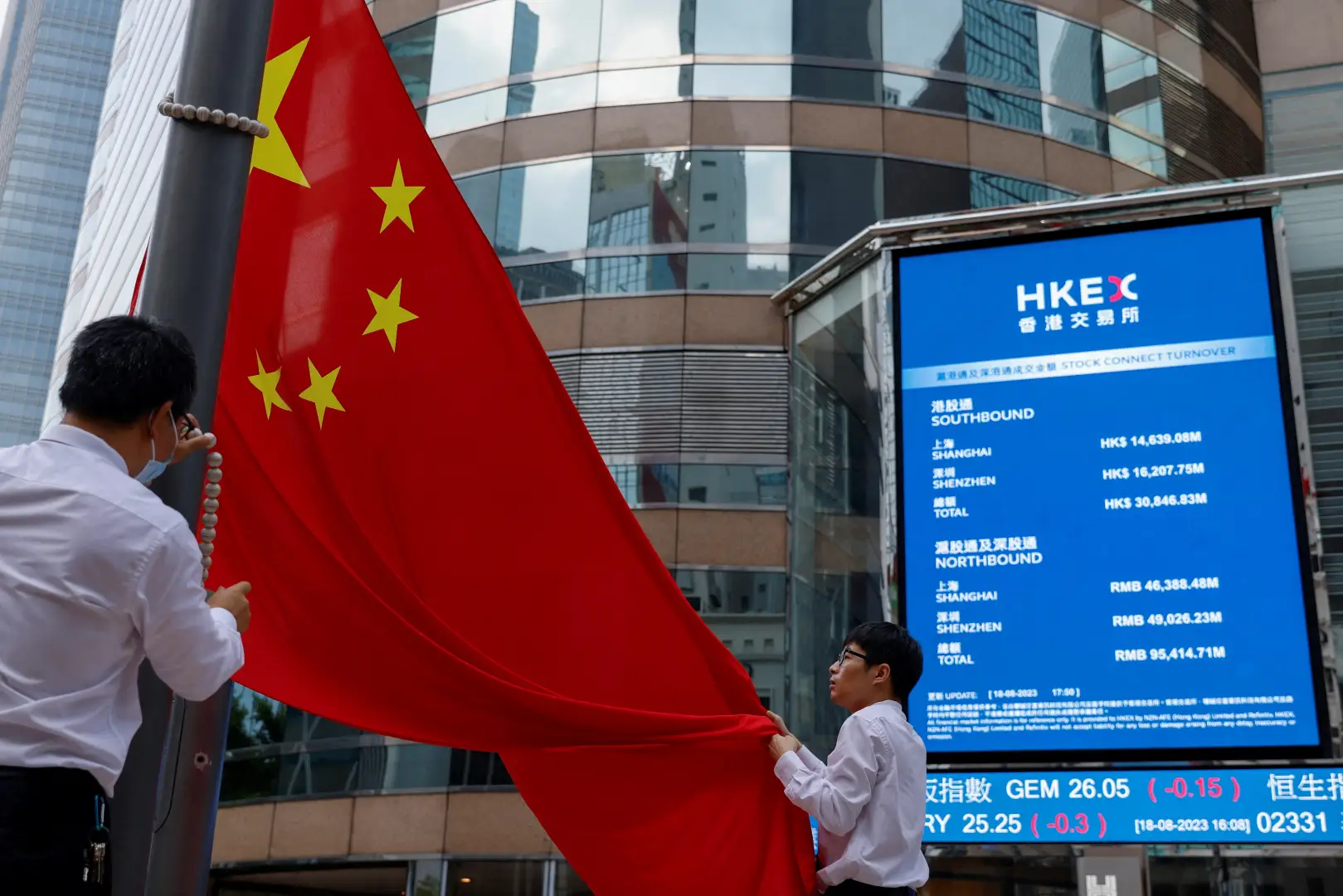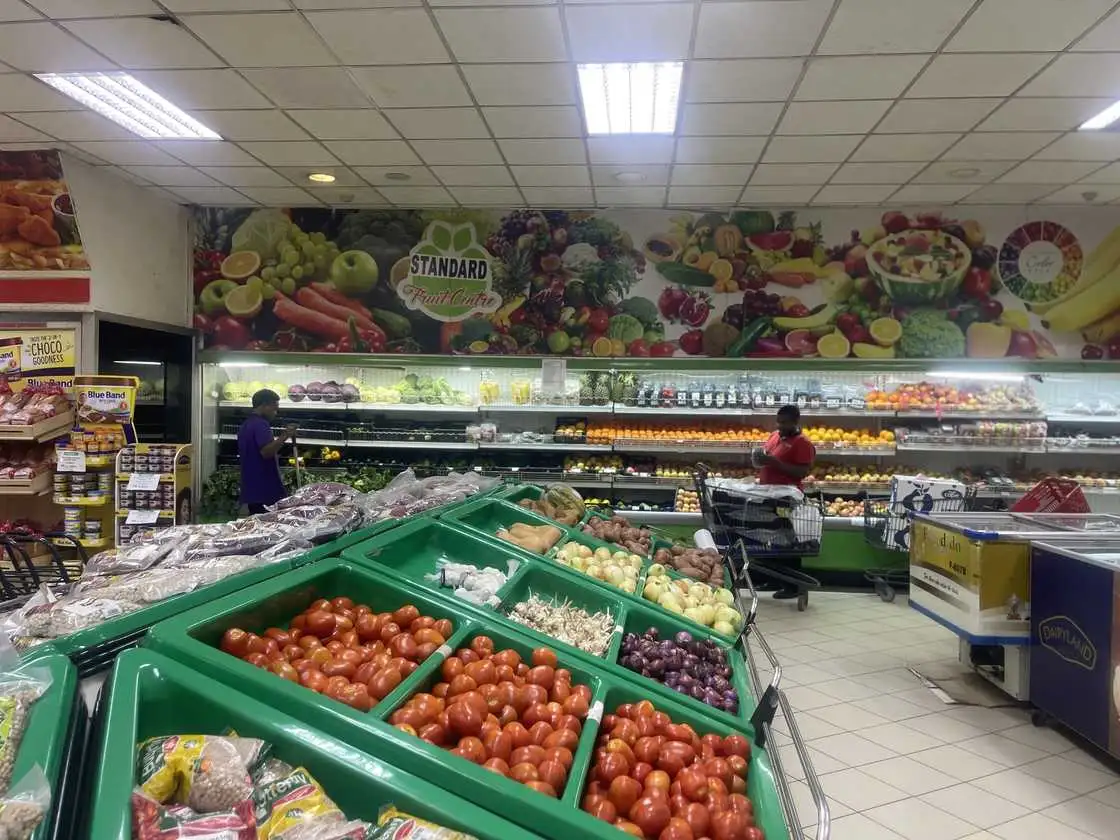In an impressive show of global confidence and renewed energy optimism, the Nigerian gas sector has attracted over $5 billion in new investments as of 2024. Speaking at a high-profile news conference in Lagos, the President of the Nigerian Gas Association (NGA), Mr. Akachukwu Nwokedi, outlined how these substantial capital inflows are set to transform Nigeria’s role in the global gas market. The announcement comes on the heels of a series of policy reforms and strategic initiatives driven by the current administration, reaffirming Nigeria’s commitment to an ambitious energy transition strategy.
A Catalyst for Transformation
Nigeria’s natural gas sector has long been recognized as a cornerstone of economic development and regional energy security. With proven reserves of 209 trillion cubic feet (TCF) – and the potential to reach as high as 600 TCF – Nigeria stands poised to emerge as a global leader in gas production and utilization. The new investments, totaling more than $5 billion, signal international investor confidence and mark a critical juncture in the nation’s energy narrative.
At a press event held in Lagos ahead of the 29th World Gas Conference (WGC 2025) in Beijing, Mr. Nwokedi emphasized that the influx of capital was not only a vote of confidence in Nigeria’s resource potential but also in the government’s progressive policies aimed at transforming the gas landscape. “These investments are a clear signal that Nigeria is making tangible progress in becoming a key player in the global gas market,” he stated, underlining the importance of enhanced infrastructure and innovative policy frameworks in driving the sector forward.
Policy Reforms Paving the Way
The Nigerian government, led by President Bola Ahmed Tinubu, has implemented several transformative policy reforms that have reshaped the operational landscape of the country’s oil and gas sector. The new Executive Orders on oil and gas operations, combined with strategic projects such as the Ajaokuta–Kaduna–Kano (AKK) gas pipeline and the Decentralised Gas Distribution Framework, have created an environment that is both investor-friendly and technologically advanced.
These reforms have been designed with a dual aim in mind: to boost domestic production and to attract foreign capital by improving transparency, streamlining regulatory processes, and addressing long-standing challenges in the sector. The roles of regulatory bodies, such as the Nigerian Upstream Petroleum Regulatory Commission (NUPRC) and the Nigerian Midstream and Downstream Petroleum Regulatory Authority (NMDPRA), have been particularly applauded for facilitating smoother commercialization and establishing more competitive domestic pricing frameworks.
The policy changes have set in motion a dynamic transformation within the sector, drawing interest not only from traditional oil and gas giants but also from newer investors seeking to participate in an energy transition that places a high premium on sustainability. By emphasizing both the economic and environmental dimensions of gas development, Nigeria’s energy strategy is positioning the nation as a prime destination for investment in a rapidly evolving global energy market.
A Robust Value Chain: Infrastructure, LNG, and Gas Processing
The $5 billion in new investments are being channeled across various critical segments of Nigeria’s gas value chain. These include:
- Infrastructure Development: Investment in infrastructure is crucial for the effective extraction, processing, and distribution of natural gas. New projects in pipeline construction and storage facilities are set to enhance Nigeria’s capacity to transport gas from production sites to domestic and international markets.
- Floating Liquefied Natural Gas (LNG) Facilities: Nigeria is investing in cutting-edge floating LNG technology that allows for flexible and efficient processing of natural gas. These facilities are particularly important in extending the reach of Nigerian gas to global markets, where LNG serves as a critical commodity in the energy mix.
- Gas Processing Plants: By enhancing the capacity and efficiency of gas processing plants, Nigeria aims to add value along the gas value chain. Improved processing techniques not only boost production quality but also facilitate the supply of cleaner, more consistent gas products to both industrial and domestic consumers.
- Domestic Utilization Projects: Investments are also being directed toward projects that enhance the domestic consumption of natural gas. This includes the development of gas-fired power plants, industrial gas usage, and initiatives to reduce energy poverty by making gas more accessible and affordable across the country.
These strategic investments have been complemented by broader infrastructural and technological improvements supported by both national regulatory agencies and global partnerships. Leaders in the sector continue to stress that expanding the gas value chain is not solely about enhancing export capabilities; it is also about ensuring that gas plays a transformative role in Nigeria’s overall economic development.
Global Implications and Energy Transition
The significance of Nigeria’s gas investments transcends its national boundaries. Globally, natural gas has been identified as a vital bridging fuel in the transition toward a low-carbon future. With many nations seeking to reduce their reliance on coal and oil, gas offers a comparatively cleaner alternative that helps reduce carbon emissions while still providing the necessary energy to drive industrial and economic growth.
At the WGC 2025 in Beijing, scheduled for May 19 to 23, Nigeria’s Pavilion is set to showcase the country’s progress in the gas sector. The Pavilion will not only highlight the substantial investments and infrastructure advancements but will also serve as a platform for discussing new technologies, international collaborations, and the strategic importance of gas in advancing sustainable energy practices. By positioning itself at this global event, Nigeria underscores its commitment to joining the global conversation on energy transition and sustainable development.
Energy experts have noted that Nigeria’s aggressive investment in gas is both timely and strategically sound. As energy markets worldwide wrestle with the dual challenges of meeting increasing demand and reducing environmental impact, Nigeria’s approach serves as a model of how resource-rich countries can lead in renewable energy transition without sacrificing economic growth. Leveraging its abundant reserves, Nigeria is channeling investments into projects that not only promise commercial returns but also contribute to reducing global greenhouse gas emissions.
International Collaboration and Global Competitiveness
The rising tide of investments has been further bolstered by international collaboration. The participation of global financial institutions, technology providers, and energy firms in Nigeria’s gas market has created a competitive landscape that is expected to yield innovative solutions tailored to both domestic and global markets. Investment in state-of-the-art LNG technology, in particular, is drawing interest from major international players who see potential in Nigeria’s ability to supply clean energy to markets across Asia, Europe, and the Americas.
This international dimension is exemplified by the upcoming discussions at the WGC 2025, where stakeholders will explore cross-border partnerships, joint venture opportunities, and technology transfer agreements aimed at further boosting Nigeria’s gas capabilities. Such collaborations are essential in a world where technology and innovation go hand in hand with capital. As Nigeria continues to modernize its energy infrastructure and regulatory frameworks, it paves the way for an ecosystem that is receptive to global best practices and cutting-edge innovations.
Moreover, the country’s strategic reforms have laid the groundwork for establishing long-term partnerships, ensuring a stable and predictable operating environment for multinational investors. By positioning itself as both a resource-rich and reform-oriented nation, Nigeria is effectively aligning its interests with those of global energy consumers who are increasingly driven by sustainability and ethical investment considerations.
The Role of Nigerian Leadership in Shaping the Sector
The leadership demonstrated by President Bola Ahmed Tinubu’s administration has been central to the sector’s revival. His commitment to comprehensive policy reforms and infrastructural investments is widely regarded as the catalyst for the recent surge in foreign capital. By addressing historical bottlenecks in regulation and infrastructure, the government has rebuilt investor trust and reinvigorated a market that had long been seen as underutilized despite its vast potential.
At the Lagos press conference, Mr. Nwokedi credited these reforms for rejuvenating the domestic gas market. Alongside the new policies, the proactive stance of regulatory bodies such as NUPRC and NMDPRA has instilled confidence among investors. These agencies have streamlined licensing processes and enhanced transparency, thereby reducing the risks traditionally associated with the oil and gas sector. Their active role in commercializing gas operations and fortifying the domestic pricing framework has been pivotal in attracting both local and international investments.
Additionally, industry leaders within national oil companies such as NNPC Ltd. have played a significant part in this transformation. Under the leadership of Mr. Bayo Ojulari, NNPC has championed several transformative gas initiatives, focusing on methane reduction and improved safety protocols for Compressed Natural Gas (CNG) operations. This proactive approach is seen as crucial for both environmental sustainability and the long-term viability of Nigeria’s gas sector.
Local Impact: Empowering Communities and Driving Economic Development
Beyond the headline figures and international investments, the renewed focus on Nigeria’s gas sector promises substantial benefits for local communities and the national economy. The influx of over $5 billion in new capital is expected to generate numerous job opportunities, ranging from construction and technical expertise to operational roles in newly established gas processing plants and infrastructure projects. This economic stimulus is anticipated to have a multiplier effect, spurring ancillary business activities and enhancing overall living standards across the country.
Moreover, increased domestic utilization of natural gas is a critical component of Nigeria’s strategy to combat energy poverty. By developing local gas-fired power plants and other industrial applications, Nigeria can not only reduce its dependence on expensive imported fuels but also provide more stable and affordable energy supplies to communities. This, in turn, has the potential to catalyze further industrial growth, creating a more resilient economic base and diversifying the country’s revenue streams.
Community empowerment also extends to capacity building and skills development in the energy sector. As new projects come online, there is a growing need for a highly skilled workforce to manage, maintain, and innovate within this burgeoning industry. Recognizing this, both government and private sector initiatives are increasingly focused on training and education programs aimed at equipping local talent with the skills necessary to thrive in a modern, technology-driven gas economy.
Facing Challenges: Navigating a Complex Global Market
Despite the overwhelmingly positive developments, Nigeria’s gas sector is not without its challenges. Global market volatility, fluctuating commodity prices, and geopolitical uncertainties continue to pose risks to large-scale investments. The sector’s capital-intensive nature means that maintaining investor confidence requires constant adaptation to external pressures and proactive risk management strategies.
One of the key challenges is ensuring that investments are translated into tangible infrastructural improvements. While the inflow of capital is a major milestone, the ultimate success of these investments hinges on efficient project execution, continuous policy enforcement, and sustained technological innovation. To address these concerns, there is a strong emphasis on public-private partnerships that leverage both government oversight and private sector efficiency. These collaborations are intended to mitigate risks, streamline project delivery, and foster a culture of accountability and transparency.
Furthermore, while the strategic focus on gas as a transitional energy source is widely lauded, there remains a critical need for continued diversification. As the world pivots toward renewable energy sources, Nigeria will need to balance its investments in natural gas with those in emerging renewable technologies. This dual approach will ensure that the country remains competitive on the global stage while managing the environmental implications of continued fossil fuel use.
The Road Ahead: Strategic Vision for the “Decade of Gas”
The Nigerian gas industry is at the precipice of a new era—one defined by a long-term strategic vision encapsulated in what officials have termed the “Decade of Gas.” This initiative is designed to galvanize the full potential of Nigeria’s natural gas resources by fostering a business ecosystem that is both innovation-driven and sustainability-focused.
Key pillars of this strategic vision include:
- Maximizing Resource Value: By harnessing state-of-the-art technology and promoting best practices in gas processing and distribution, Nigeria aims to unlock the full potential of its vast reserves.
- Strengthening Domestic Energy Security: By developing a robust domestic gas market, the country plans to reduce energy poverty and strengthen its economic resilience.
- Driving Sustainable Economic Growth: Investments in gas infrastructure are expected to create a broad range of economic opportunities, from job creation to industrial growth, ultimately contributing to a more diversified and sustainable national economy.
- Enhancing Global Competitiveness: Through active participation in forums like the World Gas Conference, Nigeria will continue to showcase its investment potential, encouraging further international collaboration and positioning the country as a key player in the global energy arena.
Industry analysts suggest that if these strategic objectives are successfully implemented, Nigeria could witness unprecedented economic growth and regional leadership in energy innovation. The “Decade of Gas” initiative is not just about capitalizing on current opportunities—it is about laying the groundwork for a transformative shift that aligns with global trends towards cleaner, more efficient energy production and consumption.
Industry Voices and Investor Optimism
The enthusiasm surrounding the recent investments is palpable among industry insiders and market observers. Several stakeholders have expressed confidence that the current wave of capital, supported by transparent and forward-looking government policies, is only the beginning of what could be a sustained period of growth and innovation in Nigeria’s gas sector.
Investors note that the strategic blend of infrastructural development, technology integration, and regulatory support is setting the stage for transformative change. Such a comprehensive approach is viewed as an exemplary model for how emerging markets can align traditional energy sectors with the imperatives of modern sustainability and global competitiveness.
As the country prepares to showcase its progress at the Nigeria Pavilion during WGC 2025, there is a consensus that this platform will further enhance Nigeria’s reputation as an investment-friendly destination. The conference is expected to be a melting pot of ideas, featuring discussions on how best to harness the potential of natural gas while integrating renewable energy technologies—a critical conversation for the future of global energy markets.
Concluding Thoughts: A Promising Future for Nigeria’s Gas Sector
The over $5 billion in new investments flowing into Nigeria’s gas sector marks a pivotal moment in the country’s energy trajectory. With a strategic vision centered on technology, sustainability, and global collaboration, Nigeria is laying the foundation for a future where natural gas plays a central role in both domestic energy security and the broader global transition toward lower carbon emissions.
The holistic approach adopted by the government—coupled with robust policy reforms and significant infrastructural investments—demonstrates a commitment to transforming the gas sector into a dynamic engine of economic growth. With proven reserves that can reach up to 600 TCF and a clear strategic roadmap, Nigeria is poised to emerge as a central player in a reconfigured global energy landscape.
As industry leaders and investors continue to rally behind the vision of a “Decade of Gas,” the country’s gas sector stands as a testament to the power of strategic reform, international collaboration, and forward-thinking innovation. The ambitious projects underway, from floating LNG facilities to upgraded processing plants and transformative domestic projects, signal not only a significant leap forward for Nigeria but also a promising blueprint for other resource-rich nations seeking to balance economic advancement with environmental stewardship.
In essence, the new wave of investments represents more than a financial milestone—it is the manifestation of Nigeria’s steadfast determination to harness its natural resources for a sustainable, inclusive, and prosperous future. As the global energy community watches with keen interest, Nigeria’s journey from potential to realization serves as an inspiration for a world striving to transition toward cleaner, more resilient, and ethically grounded energy solutions.
Ready to take your career to the next level? Join our dynamic courses: ACCA, HESI A2, ATI TEAS 7 , HESI EXIT , NCLEX – RN and NCLEX – PN, Financial Literacy!🌟 Dive into a world of opportunities and empower yourself for success. Explore more at Serrari Ed and start your exciting journey today! ✨
photo source: Google
By: Montel Kamau
Serrari Financial Analyst
14th April, 2025
Article, Financial and News Disclaimer
The Value of a Financial Advisor
While this article offers valuable insights, it is essential to recognize that personal finance can be highly complex and unique to each individual. A financial advisor provides professional expertise and personalized guidance to help you make well-informed decisions tailored to your specific circumstances and goals.
Beyond offering knowledge, a financial advisor serves as a trusted partner to help you stay disciplined, avoid common pitfalls, and remain focused on your long-term objectives. Their perspective and experience can complement your own efforts, enhancing your financial well-being and ensuring a more confident approach to managing your finances.
Disclaimer: This article is for informational purposes only and does not constitute financial advice. Readers are encouraged to consult a licensed financial advisor to obtain guidance specific to their financial situation.
Article and News Disclaimer
The information provided on www.serrarigroup.com is for general informational purposes only. While we strive to keep the information up to date and accurate, we make no representations or warranties of any kind, express or implied, about the completeness, accuracy, reliability, suitability, or availability with respect to the website or the information, products, services, or related graphics contained on the website for any purpose. Any reliance you place on such information is therefore strictly at your own risk.
www.serrarigroup.com is not responsible for any errors or omissions, or for the results obtained from the use of this information. All information on the website is provided on an as-is basis, with no guarantee of completeness, accuracy, timeliness, or of the results obtained from the use of this information, and without warranty of any kind, express or implied, including but not limited to warranties of performance, merchantability, and fitness for a particular purpose.
In no event will www.serrarigroup.com be liable to you or anyone else for any decision made or action taken in reliance on the information provided on the website or for any consequential, special, or similar damages, even if advised of the possibility of such damages.
The articles, news, and information presented on www.serrarigroup.com reflect the opinions of the respective authors and contributors and do not necessarily represent the views of the website or its management. Any views or opinions expressed are solely those of the individual authors and do not represent the website's views or opinions as a whole.
The content on www.serrarigroup.com may include links to external websites, which are provided for convenience and informational purposes only. We have no control over the nature, content, and availability of those sites. The inclusion of any links does not necessarily imply a recommendation or endorsement of the views expressed within them.
Every effort is made to keep the website up and running smoothly. However, www.serrarigroup.com takes no responsibility for, and will not be liable for, the website being temporarily unavailable due to technical issues beyond our control.
Please note that laws, regulations, and information can change rapidly, and we advise you to conduct further research and seek professional advice when necessary.
By using www.serrarigroup.com, you agree to this disclaimer and its terms. If you do not agree with this disclaimer, please do not use the website.
www.serrarigroup.com, reserves the right to update, modify, or remove any part of this disclaimer without prior notice. It is your responsibility to review this disclaimer periodically for changes.
Serrari Group 2025
















